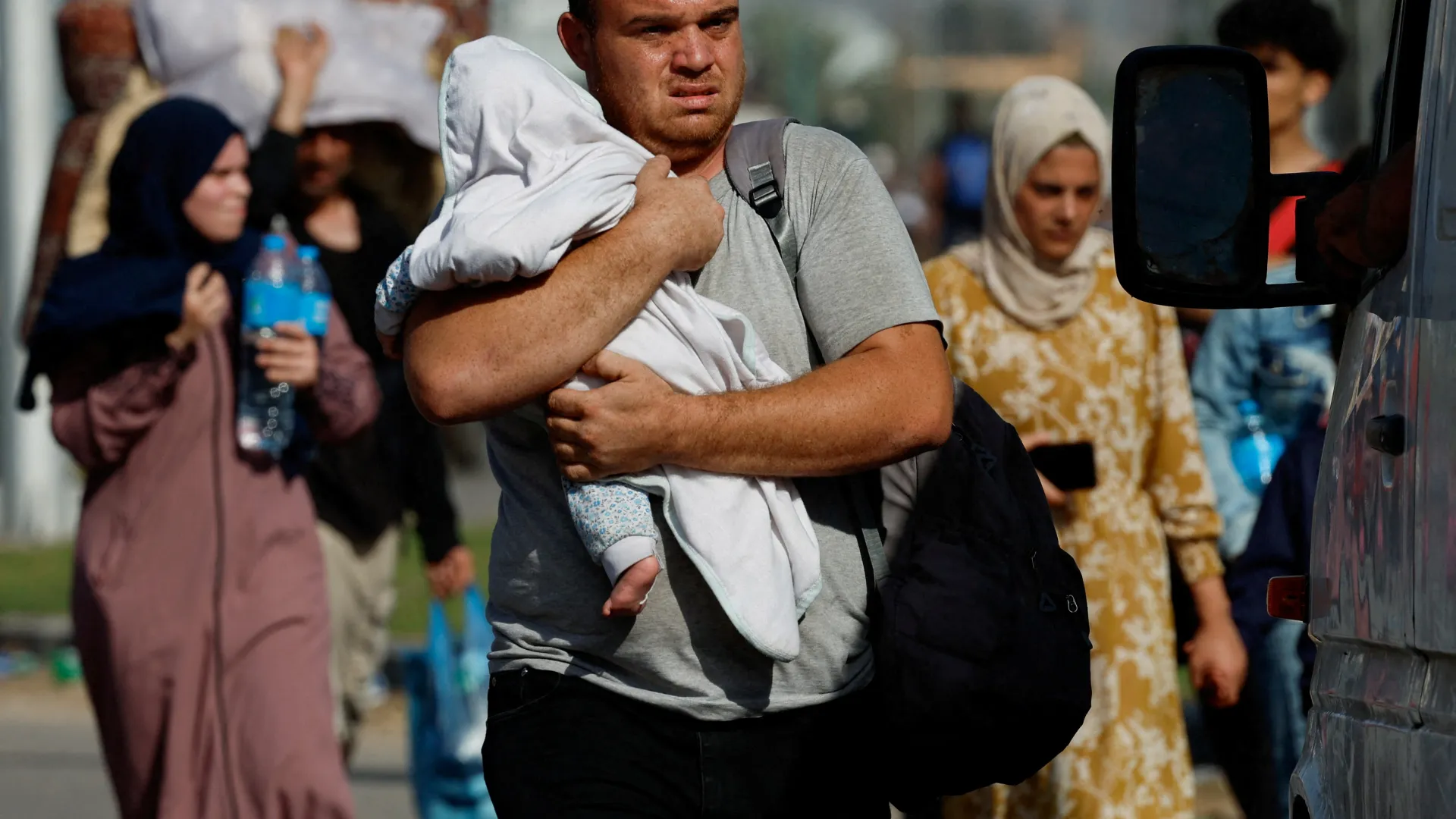
Israel fights Hamas and releases hostages in Gaza while displaced families look for shelter
With Israeli forces continuing to fight Hamas rebels in central and southern areas and having freed one hostage in an operation in the south of the enclave on Tuesday, Palestinians who had been displaced by the fighting in the Gaza Strip flocked onto the coastline.
Health officials in Gaza announced that Israeli military attacks throughout the area have killed at least 22 Palestinians.
While the ceasefire negotiations in Cairo went on with little indication of a significant resolution to the major problems dividing the parties.
Following a “complex operation” in southern Gaza, Israel declared that it had freed Qaid Farhan Alkadi, who had been held captive on October 7. It stated that his health status was typical.
Israel has ordered more evacuations from Gaza in recent days than it has since the start of the 10-month conflict. This has infuriated Palestinians, the UN, and relief workers because there are fewer humanitarian zones and no safe places.
The majority of Gaza’s population currently resides in the southern city of Khan Younis and the central city of Deir Al-Balah. Residents and displaced families in these areas claim they have been forced to live in tents that are now crammed into the beach.
Aya, 30, a Gaza City refugee who currently resides in western Deir Al-Balah with her family, stated, “Maybe they should bring ships, so next time they order people to leave we can jump there, people are now on the beach near the seawater.”
“Every day they claim that negotiations are going well and that an agreement is almost reached, but that just evaporates. Do the negotiators aware that Israeli bombing destroys more families every day? Through a messaging app, she asked Reuters, “Does the world understand that every day more costs us more lives?”
Palestinian health officials reported that Israeli attacks killed nine Palestinians in two of Gaza’s eight historic refugee camps, Bureij and Maghazi; five more were killed in Khan Younis; three more were murdered in Rafah.
The relatives of those slain in the Maghazi camp arrived at the Al-Aqsa Hospital in Deir Al-Balah to say goodbye to their dear ones before interment.
“Suddenly we heard them saying that they (Israel) struck the building, they struck the building, we started calling them on their mobile phone but no one was answering, then we called the neighbours and they told us that the building has been struck, the missile fell inside our son’s house,” Umm Mohamed Thabet, a Palestinian, said.
Along with her five- and twelve-year-old grandsons and a granddaughter whose twin survived, she said that her daughter and daughter-in-law had also perished.
“Those who are inside the house, look who they are, women and children, these are their targets.”
According to medical personnel, an Israeli airstrike in Khan Younis later on Tuesday killed five Palestinians, including three children.
According to Gaza’s health ministry, about 40,400 Palestinians have lost their lives in the conflict. According to humanitarian organizations, the densely populated enclave has been abandoned, the majority of its 2.3 million residents have experienced several displacements, and there are severe shortages of food and medication.
According to Israeli estimates, the fighting began on October 7 when Hamas militants surged into southern Israel, murdering 1,200 people and kidnapping over 250 more.
UN AID ACTIVITIES SUBTLE
As a result of further evacuation orders that Israel had issued on Sunday for Deir Al-Balah, the location of the U.N. operations center, senior U.N. officials indicated that the organization’s aid operations in Gaza came to an abrupt end on Monday.
The evacuation order was issued in response to at least one confirmed case of polio, and as the United Nations was getting ready to launch a program to immunize an estimated 640,000 youngsters in Gaza against the illness.
Negotiators in Cairo continued their negotiations as the fighting went on with the goal of putting an end to it and returning home 109 foreign and Israeli hostages as part of an agreement to swap Palestinian inmates for Israeli ones.
While the United States, Egypt, and Qatar are backing the negotiations, have expressed hope, Hamas and Israel have been assigning blame for the lack of progress.
One of the primary causes of contention has been Israel’s insistence on holding onto authority over the so-called Philadelphi corridor on the Egyptian border, which it claims has been one of the primary channels for the smuggling of weapons into Gaza.
Along the Netzarim corridor, which runs through the middle of the Gaza Strip, Israel has also insisted on checks on anyone traveling from southern and central Gaza into northern areas. It claims that this is necessary to make sure that armed fighters are prevented from moving north.
All Categories
Recent Posts
Tags
+13162306000
zoneyetu@yahoo.com



